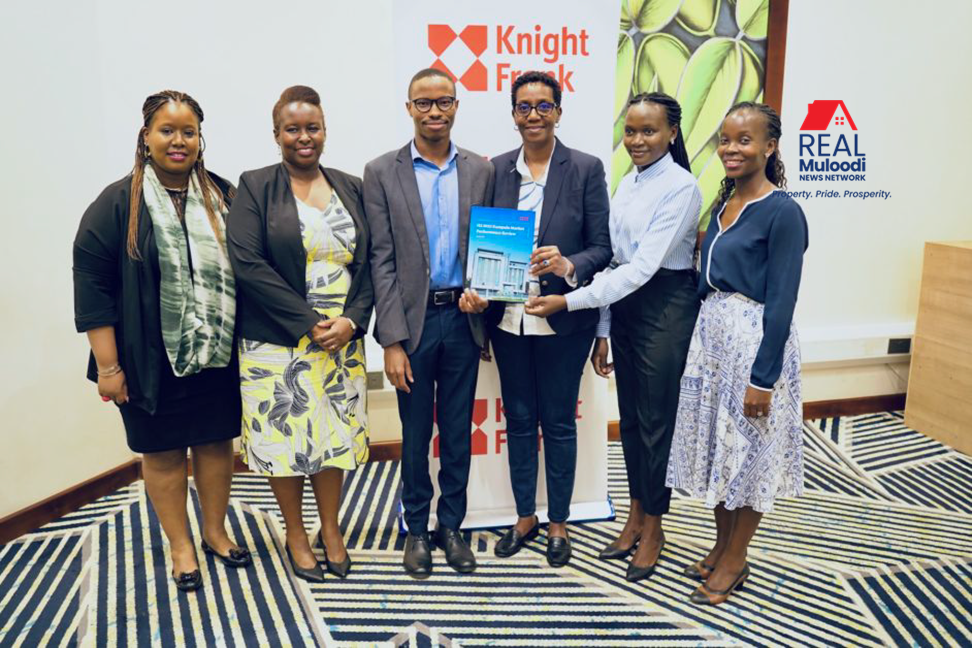UGANDA, Kampala | Real Muloodi News | A recent court case in Uganda between prominent real estate firms Knight Frank and Broll Uganda has brought attention to intellectual property concerns within the property valuation sector. The dispute, which revolved around alleged copyright breaches, highlights the need for robust measures to protect proprietary information in the real estate industry.
Background of the Case
In December 2019, Lexington Properties Limited, the owners of Acacia Mall in Kampala, contracted Broll Valuation and Advisory Services (PTY) Limited to conduct a financial valuation of the property.
The purpose of the valuation was to secure a loan from Standard Chartered Bank. Knight Frank, which serves as the official property manager for Acacia Mall, became involved after Lexington raised concerns about the quality of Broll’s valuation report.
Court documents revealed that Lexington identified alleged instances of plagiarism in the report submitted by Broll. This included proprietary content such as a digital map of existing and upcoming real estate projects in Kampala, reportedly created using aerial photography and contained in Knight Frank’s internal records. Knight Frank alleged that this information had been used without authorisation.
Allegations and Admission
When confronted, Broll Uganda acknowledged the use of Knight Frank’s proprietary material and issued an apology. Despite this, Knight Frank pursued legal action, demanding damages amounting to $430,000 for the breach of intellectual property rights and associated costs. The matter escalated to the Uganda High Court, where the case was heard in detail.
Court Ruling
The High Court delivered its verdict on November 24, 2024. While dismissing most of Knight Frank’s claims, the court awarded the firm Ush70 million ($18,941) in general damages for the breach of moral copyright privileges tied to the plagiarised material. The judgment also included a 14 percent annual interest on the awarded damages and compensation for a third of the legal costs incurred by Knight Frank.
“If the value of a commercial property appears to be reducing, it is not unreasonable that the owner of the property will ask the manager of the property what is going on. That is all that happened here,” reads part of the court’s judgment.
Ethical and Procedural Concerns
The case also highlighted potential vulnerabilities in Knight Frank’s internal policies. Court documents revealed that the company’s human resources manual lacked non-disclosure provisions for former employees, a gap that could expose sensitive commercial information to competitors.
“Protecting highly sensitive commercial information is very difficult in many organisations,” said Judy Rugasira Kyanda, Managing Director of Knight Frank Uganda. “We manage Acacia Mall, and our client expressed reservations about the property valuation reports produced by Broll Uganda. They shared their misgivings with us.”
On the other hand, Broll’s Managing Director, Moses Dennis Lutalo, stated: “We apologised and withdrew the report, but Knight Frank insisted on going to court. We tried to settle the matter out of court but failed. We have decided to move on and are not appealing the ruling.”
The Role of Valuation in Uganda’s Real Estate Sector
Real estate valuation plays a critical role in Uganda’s financial ecosystem, particularly for securing loans. Commercial banks are the primary consumers of valuation services, holding about 80 percent of the credit market, according to World Bank data.
“We have not had issues with property valuers, but I know some banks have,” said an executive at DFCU Bank Limited, who requested anonymity due to confidentiality rules. The executive cited an instance where discrepancies in valuations led to rejected reports. For example, an apartment block in Bugolobi was initially valued at Ush300 million ($81,175) but was later presented to the bank at Ush600 million ($162,349) by another party.
“Our intuition told us something was wrong with that figure, and we rejected the valuation report,” the executive added. Such incidents have prompted some banks to employ in-house professional valuers to cross-check external reports.
One significant challenge in Uganda’s valuation sector is the influence clients have over valuers. Since clients directly pay for these services, there is a risk of undue pressure that could compromise the integrity of the valuations. Additionally, some valuers have faced blacklisting by commercial banks due to questionable practices.
“Getting property valuations right is partly a function of operational experience gained over time,” noted the executive from DFCU Bank.
READ MORE LIKE THIS:
Digital Evolution: No U-turn for Commercial Real Estate in Africa
Analyzing the Slow Growth in Kampala’s Property Market Q1 2024
Knight Frank to Launch H1 2024 Kampala Property Market Performance Review



